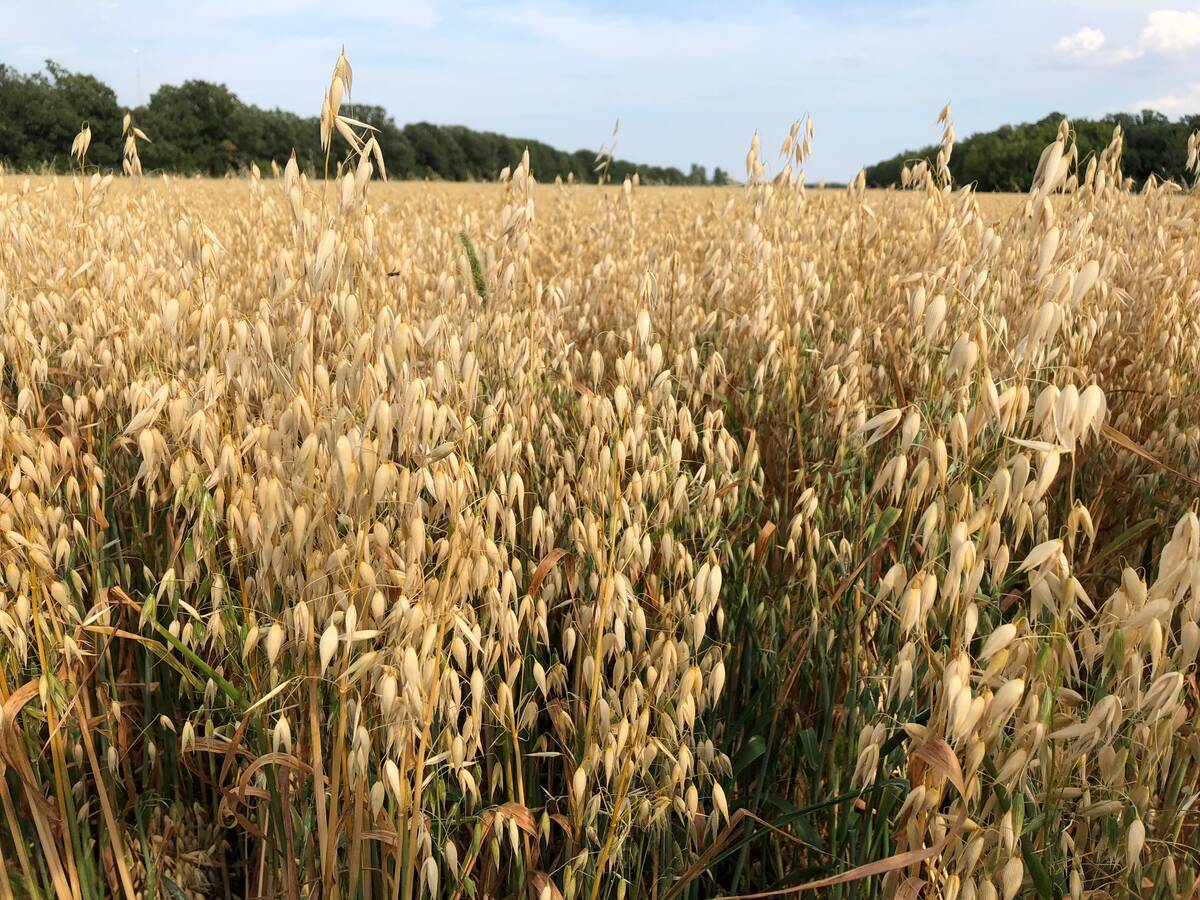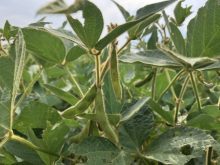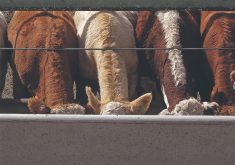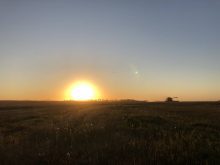A member of the neonicotinoid family of insesticides and seed treatments has been pulled back from the brink of an all-out ban in Health Canada’s final re-evaluation ruling.
Most agricultural uses of imidacloprid — sold by Bayer under brands such as Gaucho, Merit and Admire, and by Adama under brands such as Alias and Sombrero — will remain available, the department said Wednesday.
Health Canada’s final decision steps back from its proposed re-evaluation decision in 2016, under which phase-outs were proposed for all agricultural and most non-agricultural uses of the chemical.
Read Also

Big oat crop in 2025/26 pointing to less acres next year
Oat acres in Canada are likely to recede this spring with cash prices to remain low, said Scott Shiels, grain procurement manager for Grain Millers Canada in Yorkton, Sask.
At that time, the department’s Pest Management Regulatory Agency (PMRA) had cited “risks to aquatic organisms” such as mayflies and midges, which in turn are important food sources for fish, birds and other animals.
Since then, however, Health Canada said Wednesday, comments and “new data/information received” led to revisions of its occupational and environmental risk assessments and “resulted in changes to the proposed re-evaluation decision.”
Risks to bees and other pollinators from imidacloprid were covered off in a separate final re-evaluation decision in 2019, but “mitigation measures put in place as a result of the pollinator re-evaluation are taken into consideration in this re-evaluation decision.”
The changes announced Wednesday will mean new labels for most imidacloprid-based products in ground, aerial and seed treatments for crops, general pest-control sprays and bait stations, and veterinary treatments for use on dogs, cats and other pets.
They also mean outright cancellation for a few currently-registered products, including Bayer’s Merit Granular and Merit Solupack wettable powder, Adama’s Quali-Pro 0.5 Granular and Quali-Pro 75 WSP wettable powder, and SBM’s BioAdvanced granular grub control.
Revised rates
The final re-evaluation released Wednesday will cut the maximum allowed application rates for imidacloprid on several crops, including:
- seed treatment for field corn, to 13 grams of active ingredient (g a.i.) per 80,000 seeds;
- seed treatment for sweet corn, to 67.2 g a.i. per 100 kg of seed;
- seed treatment for soybean, to 62.5 g a.i. per 100 kg of seed;
- seed treatment for lettuce, broccoli and cabbage, to treatment of seed for crops grown or started in greenhouses, with no direct seeding to fields permitted;
- foliar application for soybean, down to one application per season maximum, at a maximum application rate of 24.4 g a.i. per hectare; and
- foliar application for potato, legumes other than soybeans, and tobacco, down to one application per season maximum.
The new cuts to imidacloprid’s maximum application rates lead to outright cancellation for some previously-allowed uses, such as:
- seed treatment for corn flea beetle on field corn and sweet corn;
- seed treatment for direct field seeding of brassica vegetables such as broccoli and cabbage and leafy vegetables such as lettuce;
- in-furrow application on brassica, leafy and root and tuber vegetables, including potato;
- in-furrow application on tobacco;
- field application of tray plug drench application on leafy vegetables;
- foliar and granular application on turf;
- foliar application on lowbush blueberry; and
- soil drench application on brassica, leafy, and root and tuber vegetables, including potato (but not sugar beet), based on the usual row spacing for those crops against the revised maximum application rates.
Greenhouse uses, such as a soil drench or transplant tray plug drench, are still allowed as long as “measures are in place to prevent releases, effluent or runoff from greenhouses containing this product from entering lakes, streams, ponds, or other waters.” Greenhouses using imidacloprid in a closed recirculation or closed chemigation system will have to pass third-party audits.
Imidacloprid product labels must also be changed to require spray buffer zones, inform users of “potential toxic effects to sensitive biota” and make note of revised restrictions for use of treated seed, such as seed disposal instructions and a ban on broadcast seeding of treated seed, Health Canada said.
The final re-evaluation decision also calls for risk-reduction measures to protect workers and those who enter imidalcoprid-treated areas, including changes to personal protective equipment (PPE) and engineering controls for seed treatment uses.
It also called for restricted-entry intervals and/or spray drift precautions where not already included on labels, and “clarification that the use in greenhouses is not allowed for uses only registered for outdoor areas.”
All product label changes must be made within 24 months, Health Canada said. Companies holding the registrations for cancelled products may still sell those products for one year from the decision’s publication date, followed by a year of sale at retail, followed by a year of permitted use.
The one exception among cancelled uses is as a soil drench for control of European chafer on ginseng crops. Ginseng growers were “found to lack suitable alternatives,” Health Canada said, so that cancellation will be delayed for 24 months.
‘Safety profile’
Bayer CropScience Canada, in a statement Wednesday, said it’s running a “thorough review” of PMRA’s final decision “to better understand the full impact this will have on our customers and to see how we can best support any new required mitigation measures for applicators.”
Generally the company said it’s “pleased” that the decision will “keep the use of products containing imidacloprid in the hands of farmers who look to this vital technology to help protect their crop from invasive pests, in a responsible manner.”
The chemical’s approval for continued use “confirms that neonicotinoid treatments have a favourable safety profile for aquatic invertebrates and pollinators, when used according to label instructions,” the company said.
That said, Bayer added it’s “disappointed” that the decision will affect some farmers, “primarily those in the horticulture industry,” as well as professional turfgrass managers.
Several environmental groups on Wednesday protested PMRA’s final decision, saying the new label changes and restrictions are “not a credible approach to address the role of pesticides as a factor in the biodiversity crisis.”
In a joint release Wednesday, they said PMRA “lacks mechanisms to validate the numerous assumptions underlying its assessment of risks and does not systematically monitor pesticide use or concentrations in the environment.
“The lengthy delays that plague PMRA’s pesticide risk re-evaluation program are also a concern, allowing harmful pesticides to continue to contaminate the environment for years after problems are identified,” the groups said, including the David Suzuki Foundation, Friends of the Earth Canada, Environmental Defence, the Wilderness Committee, the Canadian Environmental Law Association, Birds Canada and Ecojustice.
PMRA, they said, “delayed final decisions on neonics for two years while considering additional industry data and other information.”
“We have to ask if PMRA’s decision is free from stakeholder influence,” Beatrice Olivastri, CEO for Friends of the Earth Canada, said in the groups’ release.
“Five years ago, PMRA’s assessment showed imidacloprid posed unacceptable risks to aquatic insects based on water monitoring data from Environment and Climate Change Canada. So what happened to make them acceptable today?” — Glacier FarmMedia Network


















